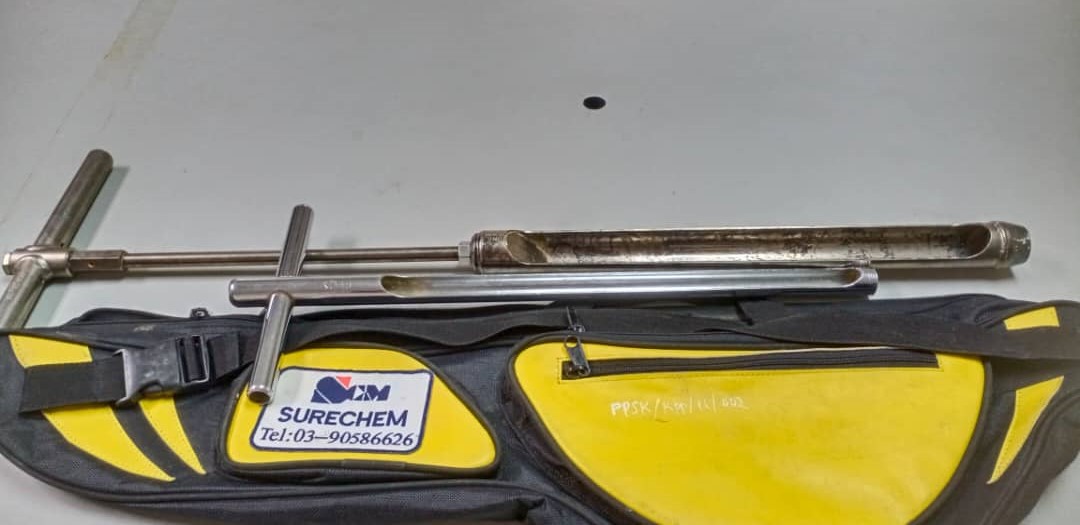


Laboratory Equipment & Services Information System
by Centralized Laboratory Management Office (CeLMO)
A portable soil sampler is a tool used to collect soil samples from various depths in a non-destructive manner. These samplers are commonly used in agriculture, environmental science, geology, and other fields where analyzing soil composition is important.
When choosing a portable soil sampler, it's important to consider your specific sampling needs, including the type of soil you'll be sampling, the depth of sampling required, and the intended use of the soil samples. Additionally, reading user reviews and consulting with experts in the field can help you make an informed decision.
Sampling Depth: Different samplers may have different capabilities in terms of the depth from which they can collect samples. Some may only collect surface samples, while others may be able to reach deeper layers of soil. Sampling Mechanism: There are various types of sampling mechanisms used in portable soil samplers, including augers, probes, and coring devices. The choice of mechanism depends on factors such as soil type, sampling depth, and the intended use of the samples. Sample Size: The size of the soil sample collected by the sampler can vary. Some samplers collect small, discrete samples, while others may collect larger bulk samples. Ease of Use: Portable soil samplers should be easy to use and require minimal training to operate effectively. They should also be durable enough to withstand rugged field conditions.
- Manufacturer
- Brand
- WARD'S
- Model
- WARD'S
- Year Manufactured
- Year Procured
- 2011
- Department
- PUSAT PENGAJIAN SAINS KESIHATAN
- Location
- Ppsk-blok A > Satu > Kpp
- Date Registered LESIS
- 28/02/2024
- Category
- Research Equipment
- Function
- Booking,
- Category
- Staff operated
- Equipment Status
- Good
Person In-Charge


